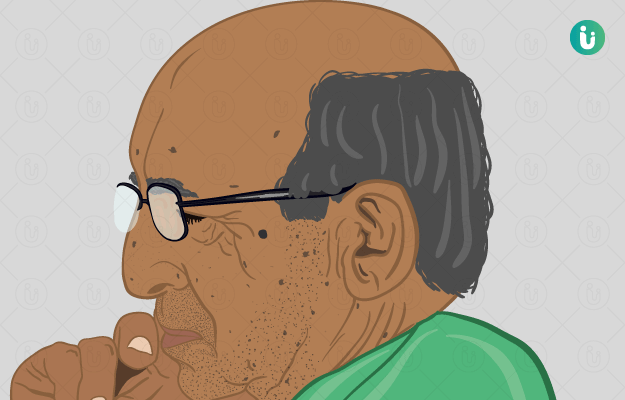What is delirium?
Delirium is a sudden decline in brain function leading to mental dysfunction. In a state of delirium, a person experiences rapidly changing mental states. It is also called as an acute confusional state.
What are its main signs and symptoms?
- Rapid changes in mental state are characteristic of delirium. These changes are seen in:
- Sudden confusion (disorientation)
- Alertness and attention
- Feeling and perception
- Muscular coordination: In a state of delirium, one may move too slowly (hypoactive) or show restless, agitated movements (hyperactive)
- Sleeping patterns or routine
- Emotions and personality
- Disturbed consciousness
- Impairment in cognitive skills
- Other symptoms include:
- Urinary incontinence
- Reduced short-term memory and recall (Read more: Memory loss causes)
- Clouding of consciousness or awareness
- Disorganized thinking that is evident when opinions are voiced
- Tremor-like movements triggered by changes in the nervous system
- Difficulty in concentrating
What are its main causes?
Delirium is a multifactorial condition.:
- Delirium may occur secondary to an underlying condition, which may include:
- Dementia (an irreversible, slow onset disorder affecting an individual’s memory)
- Life-threatening illnesses like stroke; neurologic infections/inflammations like meningitis, encephalitis, and brain abscess; brain tumour; brain injury
- Major surgery
- Some common, reversible causes include: (non-neurologic causes)
- Imbalance in chemicals that transmit nerve signals.
- Drug overdose, adverse drug reactions, or drug interactions.
- Alcohol abuse. Delirium may also occur as a withdrawal symptom when one tries to stop habitual drinking of alcohol.
- Electrolyte imbalance, hormonal disorders.
- Systemic infections, urinary tract infections, respiratory system infections.
How is it diagnosed and treated?
Medical history of the person along with patient observation is vital to diagnose delirium.
- Your doctor may also require you to undergo a few tests in order to assess neurological function:
- Cognitive function tests
- Test for perception and motor skill evaluation.
- Your doctor may also evaluate your thinking with some simple and standard questions.
- Other investigations include:
- Chest X-ray
- EEG (Electroencephalogram)
- Cerebrospinal fluid test
- MRI or CT scans of the brain
- Urine tests
Delirium shows symptoms similar to dementia. Sudden occurrence of delirium and visual hallucinations help in differentiating it from dementia.
Treatment for delirium addresses the underlying causative factors.
- Non- pharmacological methods include:
- Supportive care: Medical and hospital care should be given to the patient, attention to social needs and the patient’s environment is essential. Creating a stable and familiar environment helps the patient.
- Sleeping routines should be maintained. Problems related to sleep should be treated with milk, massage, or herbal tea.
- Physiotherapy and daily walk helps in improving motor skills.
- It is always better to hire a professional nurse at home.
- Behaviour modification therapy.
- Pharmacological therapy includes:
- Medications to treat underlying precipitating factors like infection, pain, chronic illness, and allergy.
- Antipsychotic drugs.
- Rarely, mild sedatives may be used in case of agitation and restlessness.

 Doctors for Delirium
Doctors for Delirium  OTC Medicines for Delirium
OTC Medicines for Delirium



















